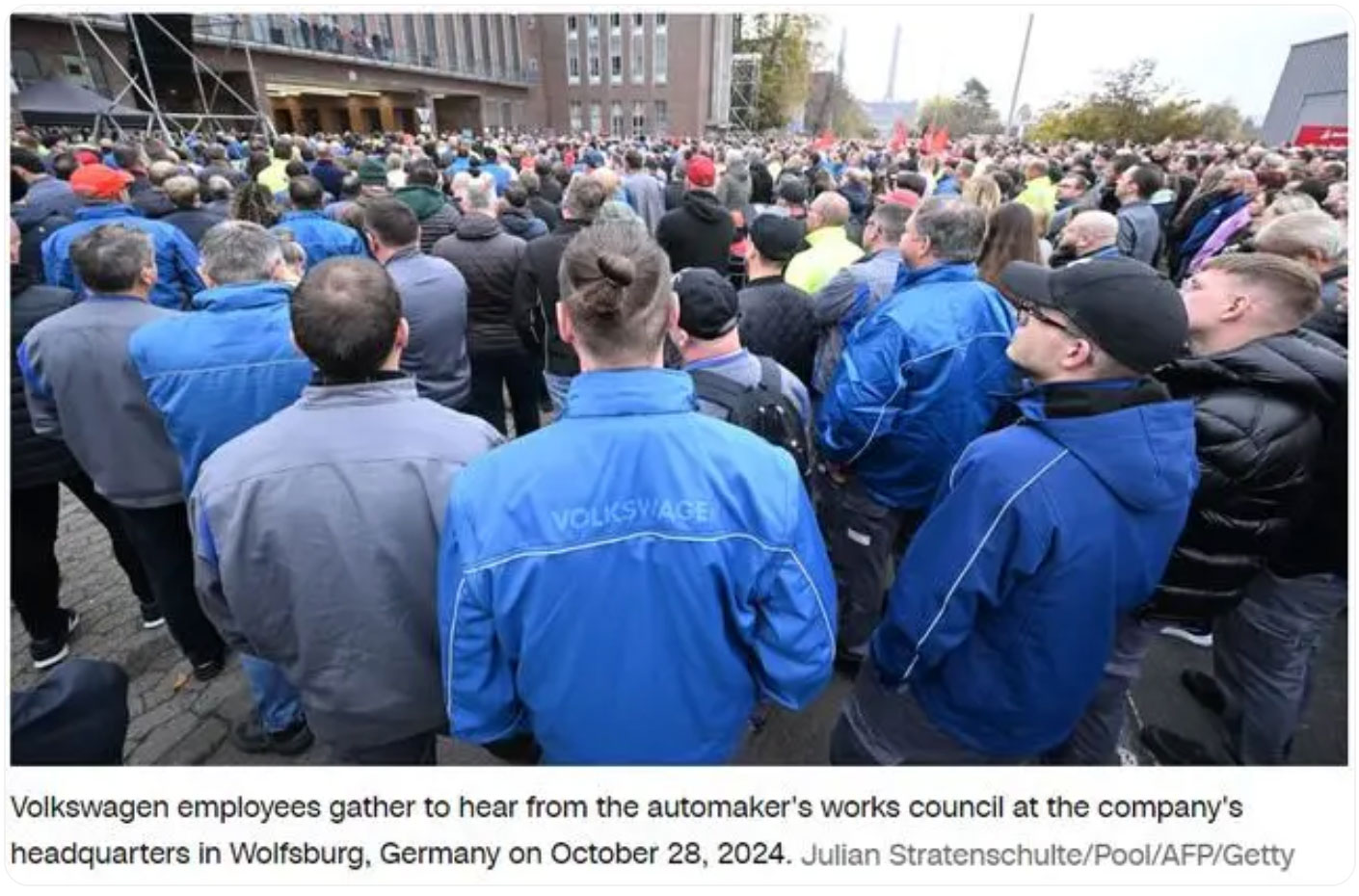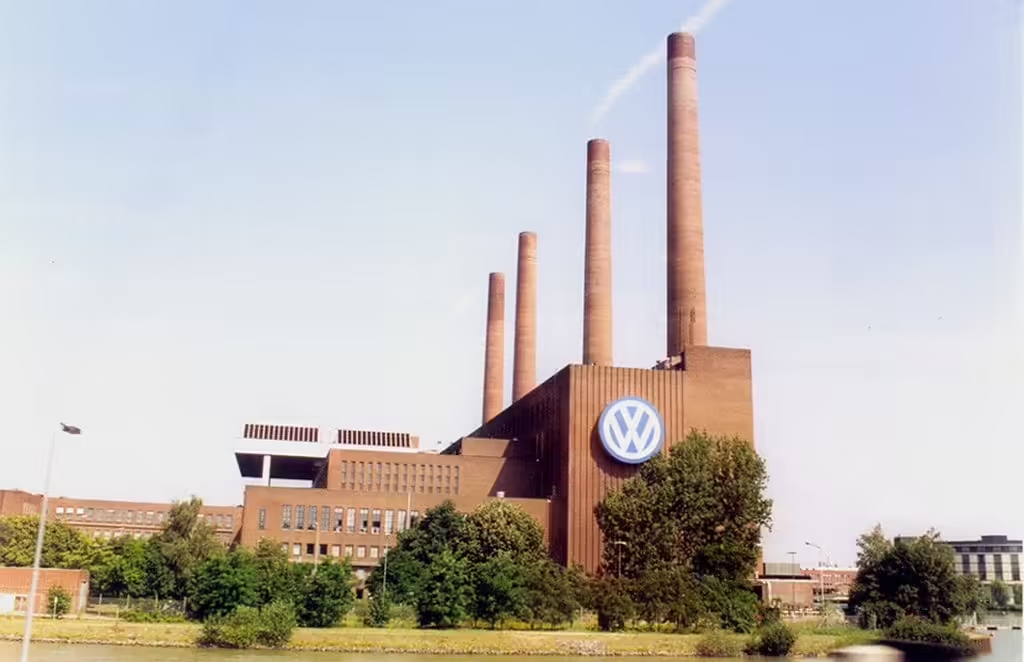Volkswagen Plans to Close Factories in Germany, Lay Off Thousands

According to reports from Reuters and CNN, on October 28th local time, Daniela Cavallo, the chairwoman of the General Works Council of Volkswagen Group, announced that the company plans to close at least three factories in Germany, lay off tens of thousands of workers, and potentially reduce the scale of other plants in Germany.
The reports indicate that negotiations between Europe's largest carmaker and the union have been ongoing for several weeks, focusing on business restructuring and cost-cutting plans, which for the first time include considering the closure of factories in Germany.
Cavallo spoke to workers at the largest factory in Volkswagen's headquarters in Wolfsburg on the 28th, stating that the cost-cutting plans exceeded expectations, involving the transfer of some production overseas or outsourcing to other companies. "All Volkswagen car factories in Germany will be affected. None is safe," she warned workers not to see this proposal merely as a negotiating tactic and threatened to interrupt negotiations.
The report notes that Volkswagen has 295,000 employees in Germany, and Cavallo did not disclose the exact number of people who would be laid off. However, the General Works Council issued a statement on the same day stating that the planned layoffs were larger than expected, including a 10% reduction in wages for all workers, calling the move "historic."

Volkswagen had previously warned that due to increasing competition and slowing sales, the company needed to undergo thorough reforms. Executives stated that Volkswagen's annual sales in Europe have decreased by 500,000 compared to before the pandemic, equivalent to the output of two factories. The company reiterated on the 28th that business restructuring is necessary and stated that it would present "concrete proposals" during a new round of negotiations with the union on the 30th.
"The fact is: the situation is very serious," said Gunnar Kilian, a member of the Volkswagen Human Resources Board, adding that without comprehensive measures to restore competitiveness, the company would not be able to afford future investments.
Thomas Schäfer, CEO of Volkswagen Passenger Cars, said the root of the problem is the low production efficiency of German factories, with individual factories' costs being twice that of competitors, 25% to 50% higher than the budget target the company can afford. He added, "Moreover, Volkswagen is still handling many internal operations, while competitors have long outsourced them in a more cost-effective manner."
CNN reported that if Volkswagen begins to close its factories in Germany, it would be a "historic moment" for the company since its founding 87 years ago, exposing the challenges it faces.
Thorsten Groeger, the chief negotiator for IG Metall, warned on the 28th, "If Volkswagen confirms its dystopian path on Wednesday (30th), its board must expect corresponding consequences from our side." The report noted that according to previous agreements between the two parties, a strike could only be held after December 1st, but IG Metall stated that "tens of thousands" of workers "are ready to express their dissatisfaction with the management."





